As the government gradually eases travel entry restrictions, the number of inbound and outbound tourists from various countries has been increasing. Taiwan has officially entered the post-pandemic era with a relaxation of entry restrictions. With quarantine hotels becoming obsolete, there is an urgent need for transformation in the local hotel industry to boost tourism in Taipei City.
The Department of Information and Tourism of the Taipei City Government joined hands with the Dream Travel Taiwan Association to host a training course on hotel industry transformation. The course is aimed at strengthening the resilience of the hotel industry and predicting trends. The participants responded that they have gained a great deal of knowledge from the lectures and experience shared by professionals from the fields of industry, government and academia.
To promote recovery of the tourism industry, the “2022 Annual Taipei City Hotel Industry Transformation Course and Site Visits” was held over five sessions since October to train hundreds of hotel practitioners. The Taipei Department of Information and Tourism focused on four major aspects of transformation — sustainability, international hospitality, digital application and innovative marketing.
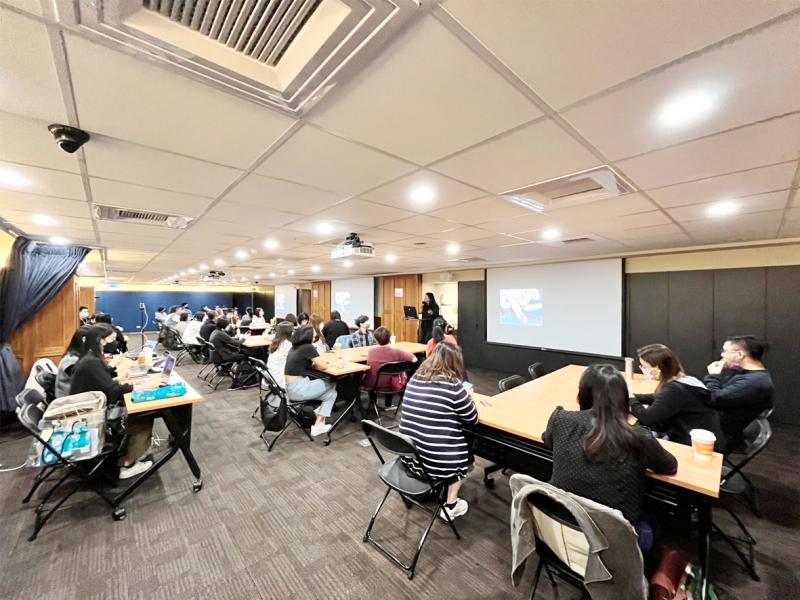
In addition to reiterating guidelines for cleanliness, the course this year also focused on the reception of foreign guests to improve service quality and broadening the participants’ knowledge of international trends. The informative sessions garnered high praise from participants.
Taipei Department of Information and Tourism Commissioner Liu Yi-ting (劉奕霆) said that to keep up with the global trend of sustainable development, the Taipei government passed legislation to achieve a net-zero emissions target by 2050 in June this year, becoming the country’s first local government to make such a commitment.
Taipei strives to promote the city’s net-zero transition, and moves toward a future of carbon neutrality in step with the world. However, a shortage of labor in the hotel sector continues during recovery from the COVID-19 pandemic. Hotels at home and abroad have begun to widely use automated devices for reception, food delivery and cleaning. Demonstrating such technology, professionals showed how digital solutions can help hotel owners deal with lower staffing levels.
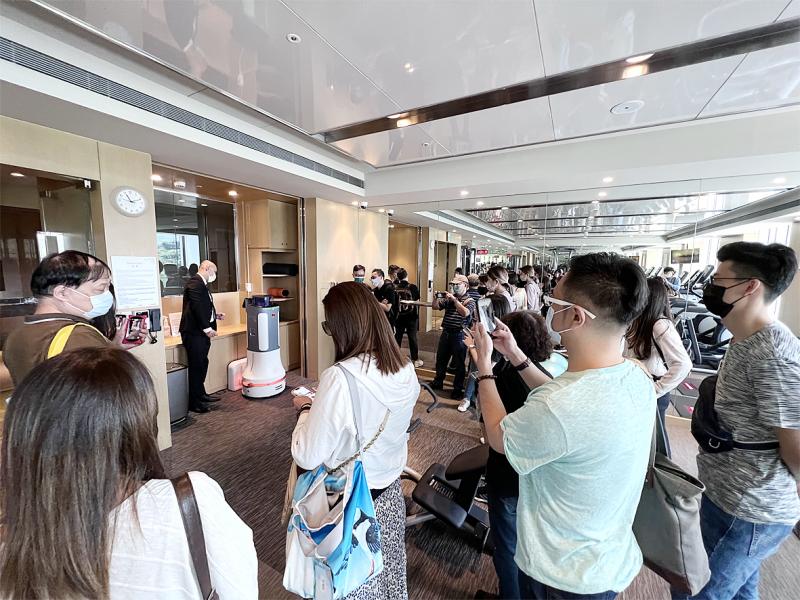
To show how services targeted to foreign guests can be strengthened, the course invited international tour guides to talk about the best ways to welcome overseas visitors. There were also courses to teaching how to promote the charms of Taiwan, and how to digitally upgrade hotel software and hardware.
Other courses included the application of big data and NFT in tourism, hotel hygiene and safety, branding, and consumer complaint resolution, which were targeted at meeting the industry’s needs coming out of the pandemic.
Liu said that Taiwan has once again ranked second in the Global Muslim Tourism Index this year. Since 2019, the Taipei Department of Information and Tourism has been promoting related programs, continuously enhancing a program to create a Muslim-friendly environment, and bolstering tourist attractions and the hotel industry in Taipei.
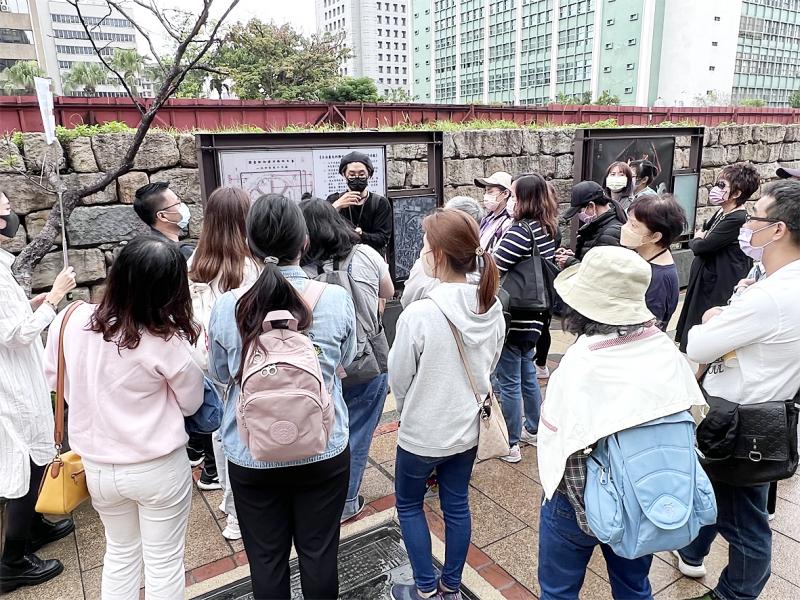
It has been four years since the department began improving facilities necessary for Muslim religious life, such as eating and praying. Many five-star hotels and quarantine hotel operators are optimistic about tourism recovery, as the phase of pandemic prevention comes to an end. Hotels all actively joined the mentoring program in the middle of the year, and look forward to the return of tourism prosperity.
(Advertorial)

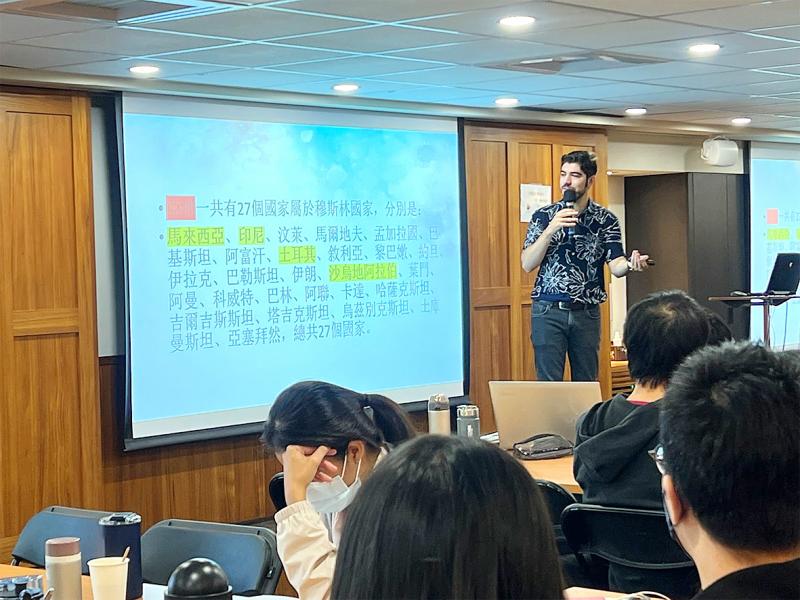
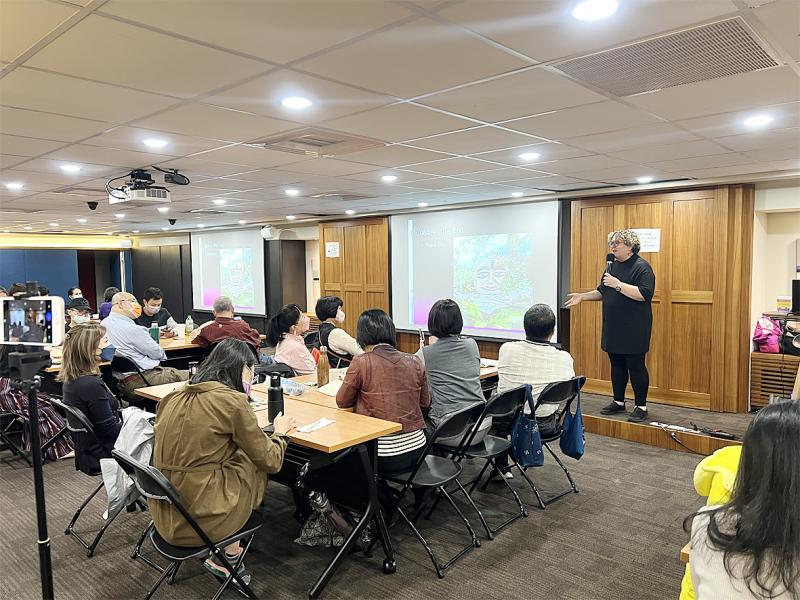

GROWING OWINGS: While Luxembourg and China swapped the top three spots, the US continued to be the largest exposure for Taiwan for the 41st consecutive quarter The US remained the largest debtor nation to Taiwan’s banking sector for the 41st consecutive quarter at the end of September, after local banks’ exposure to the US market rose more than 2 percent from three months earlier, the central bank said. Exposure to the US increased to US$198.896 billion, up US$4.026 billion, or 2.07 percent, from US$194.87 billion in the previous quarter, data released by the central bank showed on Friday. Of the increase, about US$1.4 billion came from banks’ investments in securitized products and interbank loans in the US, while another US$2.6 billion stemmed from trust assets, including mutual funds,

AI TALENT: No financial details were released about the deal, in which top Groq executives, including its CEO, would join Nvidia to help advance the technology Nvidia Corp has agreed to a licensing deal with artificial intelligence (AI) start-up Groq, furthering its investments in companies connected to the AI boom and gaining the right to add a new type of technology to its products. The world’s largest publicly traded company has paid for the right to use Groq’s technology and is to integrate its chip design into future products. Some of the start-up’s executives are leaving to join Nvidia to help with that effort, the companies said. Groq would continue as an independent company with a new chief executive, it said on Wednesday in a post on its Web

Even as the US is embarked on a bitter rivalry with China over the deployment of artificial intelligence (AI), Chinese technology is quietly making inroads into the US market. Despite considerable geopolitical tensions, Chinese open-source AI models are winning over a growing number of programmers and companies in the US. These are different from the closed generative AI models that have become household names — ChatGPT-maker OpenAI or Google’s Gemini — whose inner workings are fiercely protected. In contrast, “open” models offered by many Chinese rivals, from Alibaba (阿里巴巴) to DeepSeek (深度求索), allow programmers to customize parts of the software to suit their

JOINT EFFORTS: MediaTek would partner with Denso to develop custom chips to support the car-part specialist company’s driver-assist systems in an expanding market MediaTek Inc (聯發科), the world’s largest mobile phone chip designer, yesterday said it is working closely with Japan’s Denso Corp to build a custom automotive system-on-chip (SoC) solution tailored for advanced driver-assistance systems and cockpit systems, adding another customer to its new application-specific IC (ASIC) business. This effort merges Denso’s automotive-grade safety expertise and deep vehicle integration with MediaTek’s technologies cultivated through the development of Media- Tek’s Dimensity AX, leveraging efficient, high-performance SoCs and artificial intelligence (AI) capabilities to offer a scalable, production-ready platform for next-generation driver assistance, the company said in a statement yesterday. “Through this collaboration, we are bringing two